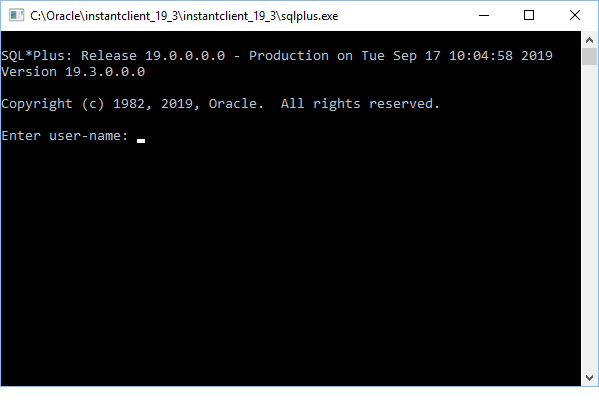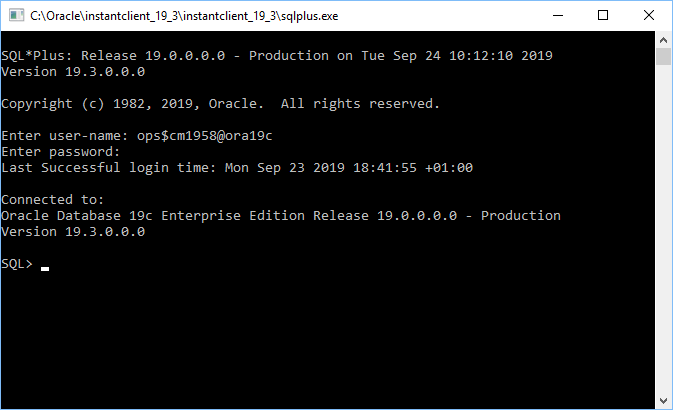Oracle:SQLPlus
Main Page >> Oracle and SQL >> Workbook >> Getting Started >> SQL*Plus
SQL*Plus Client
First of all start SQL*Plus - see this page for details: Starting SQL*Plus
It will then present you with a log on screen similar to the following figure:

Fill in the following, note the format of the username carefully:
| User-name: | This is your student number, preceded by c## and followed by @ora19c |
| E.g., if your username is 0912345, then type in: c##0912345@ora19c | |
| Password: | When you registered for Oracle, you will have been given a password. Type this in when prompted. |
| Note, the password will not be echoed on the screen, nor any asterisks shown. |
Do note that the password is case sensitive, but the user-name is not. Generally the initial password given starts with a capital letter. You can change this once you have logged in.
If you have logged in successfully you will be presented with the SQL> prompt:

Oracle 19c
From the 2019/20 Academic Year we will be using Oracle 19c. If you have used Oracle previously you will have noted that the login details have changed slightly. Do follow the instructions above when using Oracle 19c. Oracle 12c should only be used by MSc students who are completing their projects.
SQL*Plus Command Line
The prompt: SQL> means the system is waiting for you to enter a command.
There are two types of command that you may enter:
• SQL commands. For manipulating data in the database. Each SQL command is terminated by a semi-colon, which will be seen later.
• Control commands. For formatting results and editing. The semi-colon is optional for these commands.
Changing Your Password
It is advisable to change your initial password to something else. To do this, once you have logged in, type:
password
It will ask for your old password first, before you can set a new one.
If you forget your new password and the system locks you out after several attempts, re-run the registration program and it will reset it back to the original password:
Please note: we can not access any updates to your password once you change it!
Next: Setting up the Sample Database
Initially you will have no tables in your database. The next step is to: set up the sample database